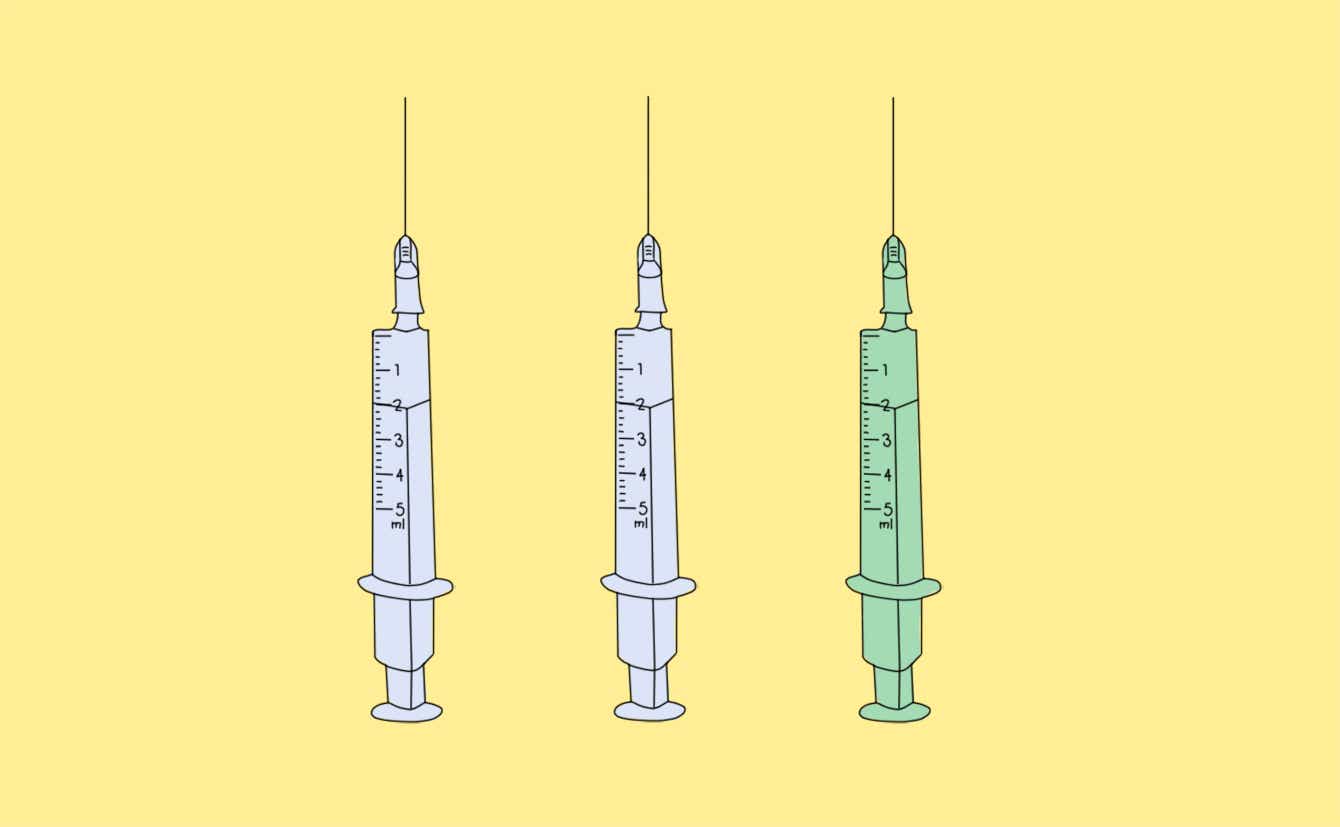There has been a contentious debate about the need for coronavirus booster shots amid the rise of the highly contagious Delta variant, which now accounts for more than 98 percent of infections.
In what marked a significant policy shift, the Biden administration announced a new plan to start rolling out boosters on September 20. And the driving factor behind this decision? Data. U.S. Surgeon General Vivek H. Murthy said studies show mild to moderate increases in infection around the six-month mark when immunity starts to wane from the vaccine.
Amid lingering concerns about the third shot, we asked four infectious disease experts to weigh in: Dr. Fauci, the director of the U.S. National Institute of Allergy and Infectious Diseases; Monica Gandhi, a professor of medicine at the University of California, San Francisco; David Dowdy, an epidemiology professor at Johns Hopkins University; and Andrew Pavia, who is chief of the division of pediatric infectious diseases at the University of Utah.
Wait, first, what is a booster shot, anyway?
Good question! We've put together a nifty video that explains what booster shots are and why they are sometimes needed. Check it out below:
Do we need Covid-19 booster shots?
Due to concerns about global vaccine inequality, The World Health Organization went so far as to call for a moratorium on administering booster shots as a way to help ensure that doses are available in developing nations.
But Dr. Fauci believes this isn’t an either/or choice. “You certainly want to pay very good attention to getting vaccine doses to the developing world,” he said. “But I believe you can do both — you can boost and get doses to them.”
Dr. Fauci is in favor of booster shots, if needed. “I think if we need an additional boost, an initial dose to get the optimal protection…I believe that we can do that in this country, particularly for people who were immunosuppressed…They very well may need as part of their primary regimen, a three-shot boost of an mRNA vaccine,” he told KCM.
Dr. Gandhi said the key metric to watch is if there starts to be an increase in fully vaccinated people coming down with severe cases of Covid-19, something that hasn’t happened yet.
Dr. Dowdy on the other hand expressed more uncertainty about the necessity of an extra dose: “I'd say that the jury is still out in terms of booster shots right now,” he told us. He did add, though, that it’s only a matter of time before additional shots are necessary as the effectiveness of the shots starts to wane over time.
Meanwhile, Dr. Pavia put it more bluntly: “We need data to make that decision, not opinions.” He thinks these conversations are still "premature," but recognized the need to prioritize those who need it the most.
“What we need to do is to understand whether booster shots are needed and for who, what type, and when,” said Dr. Pavia.
Who will be eligible for the booster shot in the fall?
Americans 18 years and older who have previously received the Pfizer or Moderna vaccines will be eligible for a booster eight months after their second dose. Though more research is needed, federal health officials believe the one-shot Johnson & Johnson and vaccine will need an extra dosage.
Health care workers, nursing home residents, and older adults will all be first up, followed by the rest of the general public.
Do vaccinated people need to get a booster shot to protect themselves against highly contagious variants like the Delta strain?
Though Biden's plan to rollout booster shots this fall was driven in part by the prevalence of the Delta variant, all three experts agree that the vaccines are extremely effective in combating the coronavirus.
“It's important for people to recognize that even without a booster shot, these vaccines are highly effective and remain effective,” Dr. Dowdy told us.
Should people be concerned about the potentially serious side effects of a Covid booster shot?
At this point, the U.S. needs to see more information on whether additional shots could raise people's risk of even more serious side effects. Deputy director for infectious diseases Jay Butler has said current data shows that the risk for developing side effects was even higher after the second dose, suggesting that the third jab could come with even greater risks.
But, in general, Dr. Gandhi said the side effects from all vaccines are extremely rare, saying the benefits “far outweigh the risks.”
In the meantime, should people still wear a mask?
The CDC has relaxed its guidance for most fully vaccinated adults, the experts agree that continuing to wear a mask is a good idea in certain situations.
Dr. Pavia said fully vaccinated Americans should consider wearing a mask if they’re around anyone who is immunocompromised or if they live in a state with a high rate of infections. While breakthrough infections are rare among vaccinated individuals, they do happen, says Dr. Gandhi.
As the dangerous new Delta variant takes hold in the U.S., Dr. Dowdy believes fully vaccinated Americans still need to do their part when it comes to mitigating the virus' spread. "It's important for people to recognize that case counts are going up in states and we need to be prepared to do a little more as a society to make sure that we don't have another major outbreak," he said.









